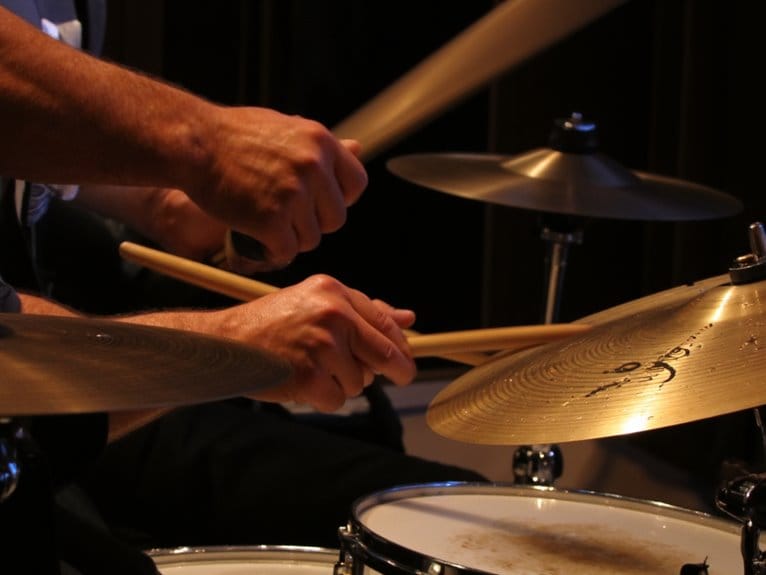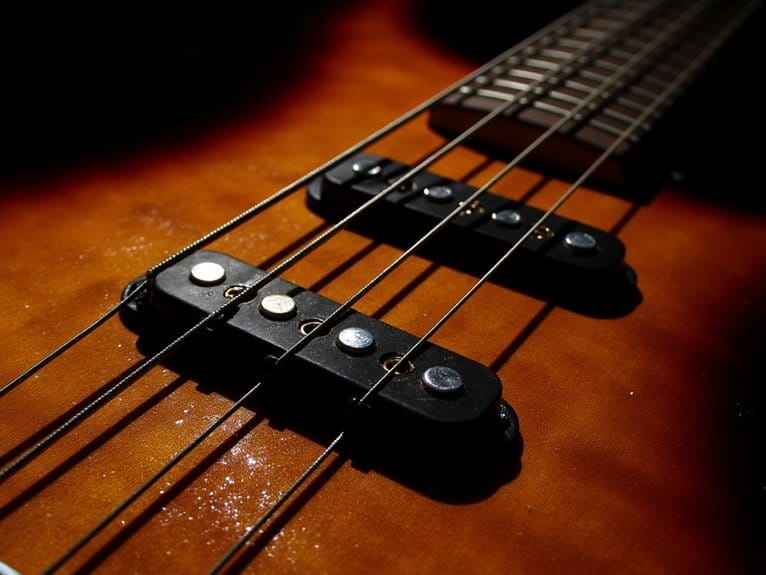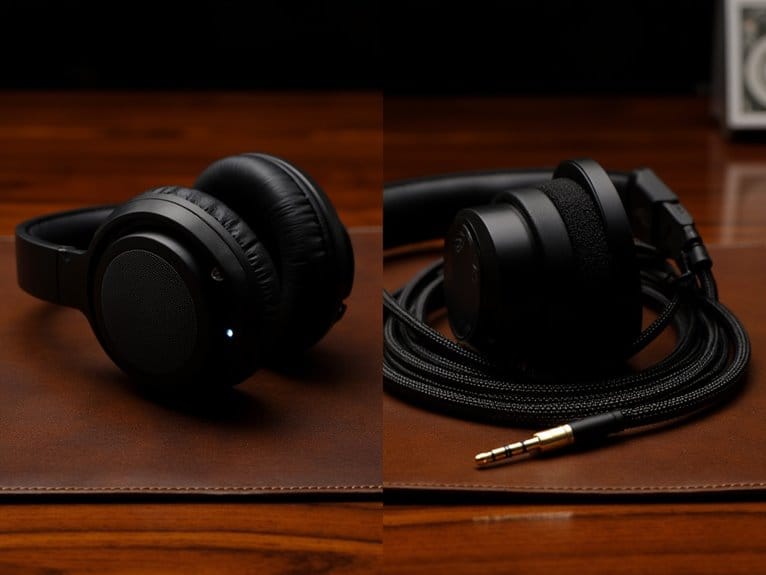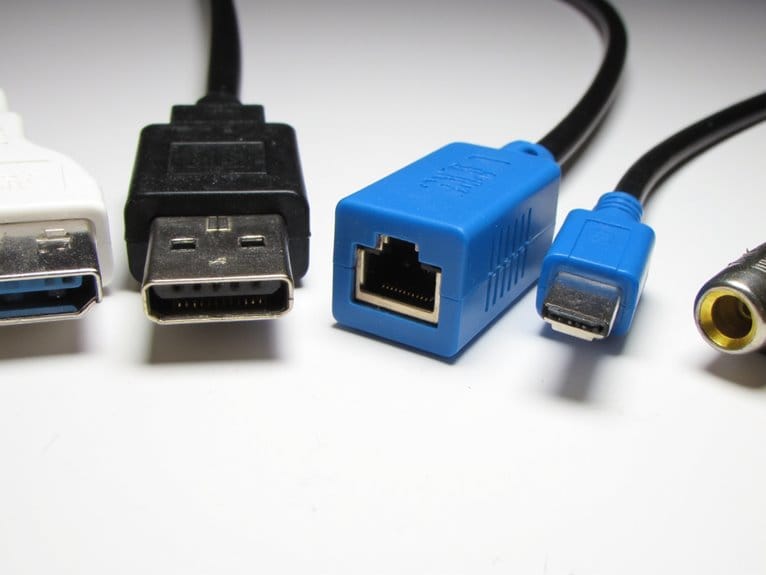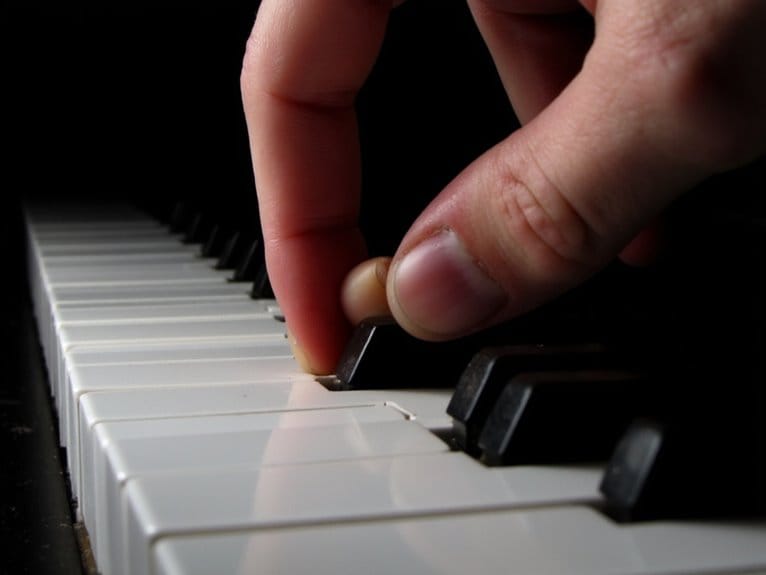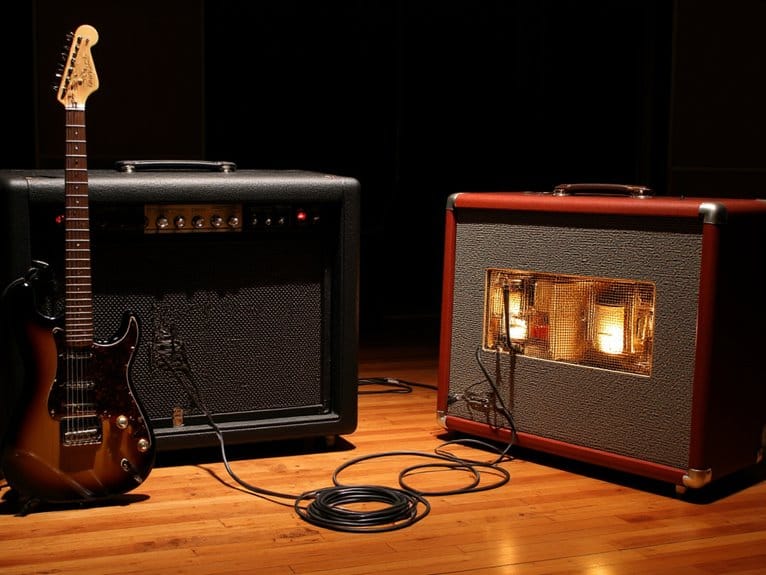The Benefits of Percussion Instruments for Musicians
When you play percussion instruments, you’re actually rewiring your brain in remarkable ways, increasing gray matter density in your motor cortex while strengthening white matter integrity in your corpus callosum. You’ll develop superior bilateral coordination, enhanced memory recall for verbal information, and improved working memory within just 10 weeks of training. Beyond cognitive benefits, you’ll experience stress reduction through endorphin release, better emotional regulation via rhythmic patterns, and enhanced sensory integration that surpasses other musical disciplines, with deeper insights awaiting exploration.
We are supported by our audience. When you purchase through links on our site, we may earn an affiliate commission, at no extra cost for you. Learn more.
Notable Insights
- Percussion training increases gray matter density in the motor cortex and strengthens white matter integrity in the corpus callosum.
- Playing percussion instruments enhances bilateral coordination, hand-eye coordination, and finger dexterity beyond other musical instruments.
- Rhythmic patterns provide emotional stability mechanisms and serve as effective stress management tools for musicians.
- Percussion engagement reduces stress through endorphin release while significantly decreasing symptoms of depression and anxiety.
- Regular percussion practice creates lasting improvements in cognitive efficiency, executive function, and attention regulation for daily life.
Cognitive Enhancement and Brain Development Through Percussion
When you pick up drumsticks and start laying down a steady beat, you’re not just making music-you’re literally reshaping your brain in ways that’ll benefit you for decades to come.
Research shows that percussion training increases gray matter density in your motor cortex while strengthening white matter integrity in the corpus callosum, which connects your brain’s hemispheres. This enhanced neural connectivity improves memory recall, particularly for verbal information and story retention, benefits that extend well beyond musical performance.
The rhythmic patterns you practice facilitate superior sensory integration, coordinating your auditory and motor systems with remarkable precision. These structural changes represent genuine neuroplasticity at work, creating lasting improvements in cognitive efficiency, executive function, and attention regulation that’ll serve you throughout life. Even short-term training of just 10 weeks can produce measurable improvements in working memory and reaction time performance.
Physical Coordination and Motor Skill Advancement
The neurological changes percussion creates in your brain directly translate into remarkable improvements in physical coordination and motor skills, transforming how your body moves and responds in both musical and everyday situations.
Percussion training rewires your brain to dramatically enhance coordination and motor skills that improve how you move through daily life.
When you engage in rhythm training, your hands, feet, and eyes learn to work independently yet synchronously, developing bilateral coordination that extends far beyond musical performance.
I’ve observed that drummers consistently demonstrate superior hand-eye coordination and finger dexterity compared to other musicians, largely because percussion demands simultaneous limb control while maintaining precise timing. These movements enhance fine motor skills that carry over into detailed tasks requiring precision and control.
The muscle strengthening aspect shouldn’t be overlooked either – regular practice burns up to 500 calories per session while building arm, shoulder, and core strength, effectively turning your musical hobby into an extensive physical workout. This makes percussion particularly valuable in rehabilitation therapy settings, where patients recovering from injuries can rebuild their motor functions through engaging musical exercises.
Emotional Regulation and Mental Health Benefits
Beyond the physical benefits I’ve outlined, percussion instruments offer profound emotional regulation and mental health advantages that I find particularly compelling, especially considering how our modern lives consistently bombard us with stress and anxiety. When you engage with drumming, you’re accessing powerful neuroplasticity mechanisms that enhance your brain’s ability to reorganize and improve emotional stability through rhythmic patterns.
| Mental Health Benefit | Mechanism | Duration | Population |
|---|---|---|---|
| Stress Reduction | Endorphin release, cortisol reduction | Short sessions | All ages |
| Trauma Processing | Subconscious emotional access | Ongoing therapy | Clinical populations |
| Mood Improvement | Parasympathetic activation | Immediate | General musicians |
| Social Connection | Group interaction, communication | Session-based | Community groups |
The structured beat patterns provide excellent stress management tools, while group sessions foster emotional expression and reduce isolation effectively. Research indicates that playing percussion instruments can lead to significant reductions in both depression and anxiety symptoms, offering musicians a valuable therapeutic tool alongside their artistic pursuits. The rhythmic engagement also promotes physiological relaxation by slowing pulse and heart rate, creating a natural pathway to emotional balance that musicians can access through regular practice.
On a final note
You’ve seen how percussion instruments can sharpen your cognitive abilities, enhance your physical coordination, and provide powerful emotional regulation benefits. Whether you’re developing neural pathways through complex rhythmic patterns, improving your hand-eye coordination through stick control exercises, or finding stress relief through rhythmic meditation, percussion offers a complete toolkit for personal development. Don’t underestimate the transformative power of simply picking up those sticks and starting your rhythmic journey today.

